‘Raising the next Ovechkin’: venture capital urged to turn toward universities
Currently, Russian venture funds are investing in late-stage companies for subsequent IPO
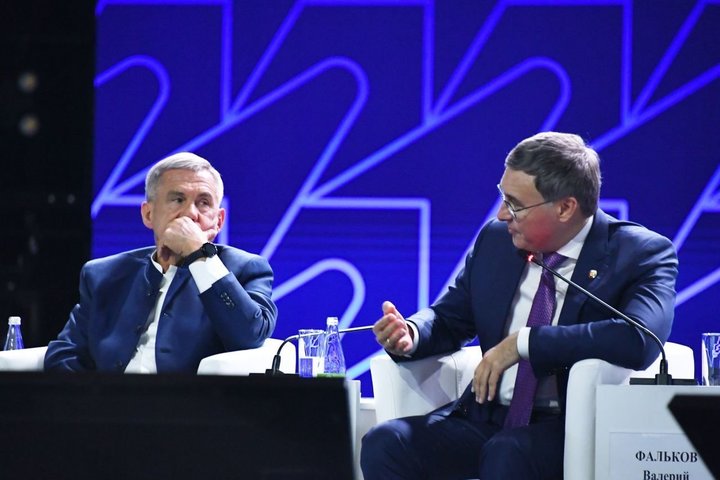
“Most of the time, they want to invest in a ready-made startup in order to make good money in 5 years. But we won't build an industry like this! Because only three or four technology companies survive to the late stage," Dmitry Sauers, Deputy Chairman of the Board of Gazprombank, criticized the investment strategies of funds that select late-stage companies. This trend was clearly evident in 2024, when 62% of the total venture investment portfolio was directed to projects with a ready-made, tangible product, and business angels also “flew over” to them. No one wants to take any chances. Together with RVC, Gazprombank, the Perspektiva ecosystem of venture funds and industrial partners, a fund is being established to invest in deeper production changes in the chemical industry. Read more in on the material of Realnoe Vremya.
Technological leadership doesn't scare students
Investment activity in the Russian venture capital market is gradually recovering after a severe “freeze” in 2023, the participants of the 19th Russian Venture Forum noted with optimism. The RVF is held under the patronage of Valery Falkov, Minister of Science and Higher Education of Russia, who has been chairman of the forum's organising committee for several years. Albina Nikkonen, Executive Director of the Venture Investment Association (RAVI), flew to Kazan with him. Together with Rustam Minnikhanov, they launched the forum by pressing the launch button of a symbolic space rocket with the RVF logo. The head of RAVI, who began promoting the once mysterious venture in Russia almost 20 years ago, was even slightly moved. It seemed important to her that not once during this time in the republic had the forum been postponed to better times. And next year's meeting will be held in April, she noted.
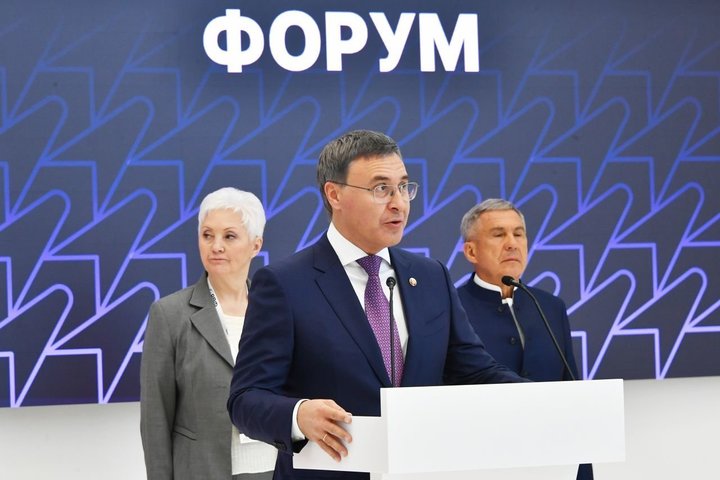
This time, the central theme of the plenary session is “Technological entrepreneurship — a space of higher competencies.” Valery Falkov outlined the current state of the innovation infrastructure created at Russian universities to develop technological entrepreneurship skills among students. The University Technology Entrepreneurship Platform program operates in almost 434 universities in the country. Over the three years of its work, more than 793,000 young people have been involved, and over 36,000 startups and startup projects have been created.
“Since this year, the project of the Ministry of Education and Science “Platform of University Technological Entrepreneurship” and the program of the Ministry of Economic Development “Take-off — from startup to IPO” have been combined within the framework of the federal project “Technologies” of the national project “Efficient and Competitive Economy”. It is important that the entire support line of the platform is preserved," he said.
Tatarstan joined the capital of the republican Fund of Science and Technology with a property contribution, said Rustam Minnikhanov. “Students of our universities have submitted a total of 4,500 applications for participation in the federal Student Startup competition. Of these, 734 received support. All this is a huge amount of work, carried out jointly. Our young people are very talented. Undoubtedly, we must continue to support ambitious people who are not afraid to take risks," added Rustam Minnikhanov.
Almost 300 students have become millionaires — holders of research grants. The head of the republic drew attention to that enterprises are actively involved in the implementation of development programs for six advanced engineering schools: “Powerful financial incentives have been introduced in Tatarstan. For the first time, a postdoctoral competition was held, the winners of which became recipients of a grant for the defense of a doctoral thesis. A program has been developed to improve the living conditions of young scientists.”
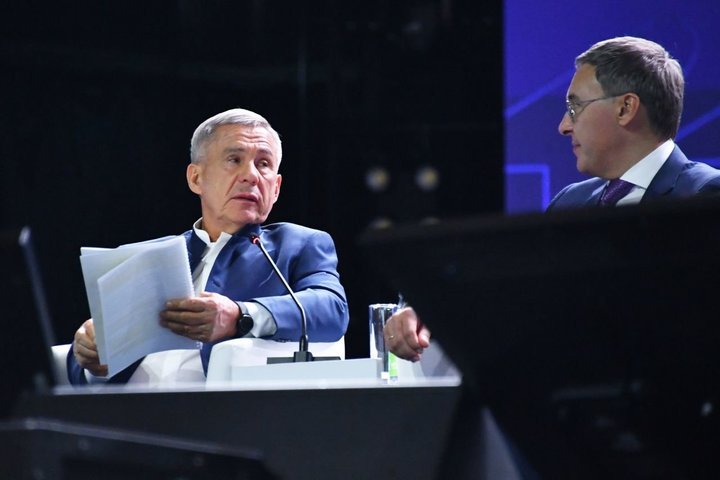
Why venture capital goes into the late stages
The discussion at the plenary session went beyond the stated topic, and to a greater extent the dialogue was about which strategy to follow in the recovering venture capital market. After all, under the changed conditions, he lost his appetite for risky investments. Venture capital funds tend to invest in companies at late stages of development, as the subsequent exit from them is predictable — it is either an IPO or a sale if it is not possible to achieve business capitalisation.
“Two years ago at the SPIEF, we discussed whether the venture capital market was alive or dead. And now we can say that it is slowly starting to recover," stated Alexey Parabuchev, General Director of the Moscow Innovation Cluster Foundation.
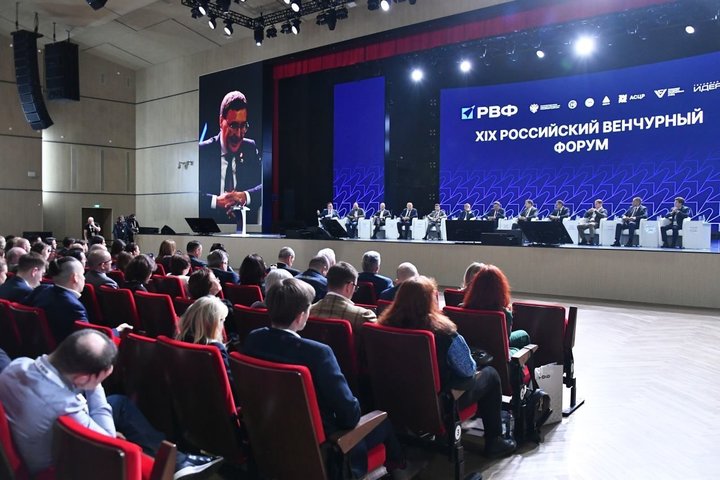
According to him, the main feature of the recovery was the bias towards late-stage startups. “Now private companies and business angels have less appetite for risk. They prefer to invest in clear and well-established market segments, in those companies that show growth, which brings them closer to the IPO stage. This is both good and bad. It's bad because it's difficult to secure the next generation of fast-growing companies," he argued.
Venture capital thaw: investments increase to 17 billion rubles
Last year, 165 deals worth 17 billion rubles were concluded. The volume of venture capital investments increased by 53%, which made it possible to overcome the minimum of 2023, when the volume of transactions decreased to 11 billion rubles. The year 2021 is considered to be the record year for investments, when 191 billion rubles were invested in startups, including Western capital.
According to Parabuchev, the bulk of investments are attracted by late-stage companies. The inflow increased 13-fold to 10.6 billion rubles. In general, the activity of state corporations and private capital has revived in the market.
Business angels have become not just players in the venture capital market, but, in fact, are beginning to occupy a dominant role. They carried out 42% of the total volume of transactions last year. This means that private money has gone into venture capital. But in 2023, they invested in early stages, and now they're going into startups of all ages. This is a plus, because private money in the venture capital market is the key to its sustainability.
Anatoly Braverman, CEO of RVC, said that he sees his task as acting as an investor in new funds. “Four funds were created last year, and one this year. Several funds are in the final stages, and one of them is from the republic. All investments are directed towards national projects of technological leadership," he said.
Only a few survive to a late stage
“Most often they want to invest in a ready-made startup in order to make good money in 5 years. But we won't build an industry like this! Because only three or four technology companies survive to the late stage," Dmitry Sauers, Deputy Chairman of the Board of Gazprombank, criticised the investment strategies of funds that select late-stage companies.
He called for turning toward universities, as technological leadership is impossible without science and knowledge. “No one wants to invest in early stages, in universities, projects often die, they don't survive," he pointed out the shortcomings of the new strategy. According to him, the bank undertook to restructure the work of universities and bring developments to the commercial stage. He is sure that it is necessary to support the projects of students who “face the abyss of death immediately after university.”
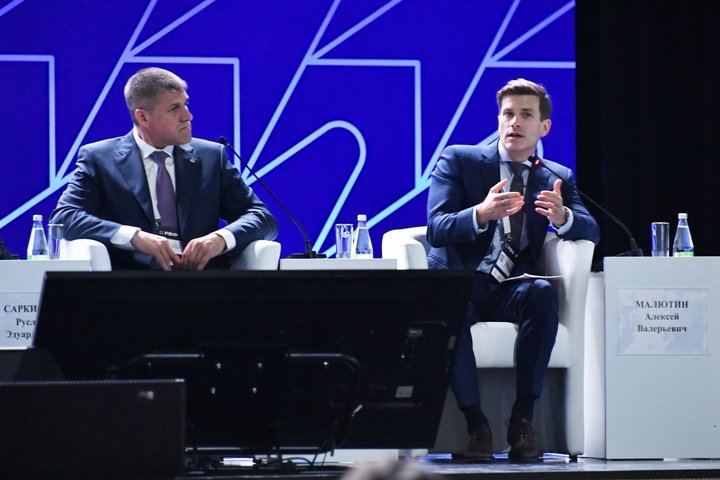
“How do you form investment strategies?” Ruslan Sarkisov, managing partner of the Voskhod Venture Fund, was asked. “Who do you choose — the fast-growing gazelles or those who promise slow but steady growth?”
Let us remind that this fund is a major player, manages the capital of Interros, T-Bank, VK Yakutia, NTI. In total, he manages 18 billion rubles. Currently, 7.2 billion rubles have been invested in 38 projects. Last year, 11 deals worth 1.5 billion rubles were concluded. But by the beginning of this year, there were already five 2.8 billion rubles. The foundation's priorities are robotics, cybersecurity, and microelectronics.”
His answer was short and clear. “To be honest, we don't believe in slow step-by-step growth," he said, making it clear that the priority is those who will provide quick income.
“For such projects to appear, someone should actively work with young, aspiring startups," the other participants in the discussion retorted.
This is where the story of a Western billionaire who bought up clubs and then invested in the development of the famous hockey player Alexander Ovechkin came in handy. “Every fund has a dream to raise its own Ovechkin," agreed Alexey Malyutin, partner of the Perspektiva ecosystem of venture funds. “Once we started with the oil and gas industry, Russia has a huge market that allows us to grow champions of cool companies. The well stock is about 200,000, there is no such market in other countries. We compete with large oilfield service companies, Schlumberger spends $750 million every year. It makes no sense to compete with them, but we can compete with an open innovation system.”
Tatarstan is developing the chemical industry with the help of venture capital investments. Together with RVC, Gazprombank, the Perspektiva ecosystem of venture funds and industrial partners, a fund is being established to invest in deeper production processes in the chemical industry, said Alexey Malyutin, partner of the Perspektiva ecosystem of venture funds.